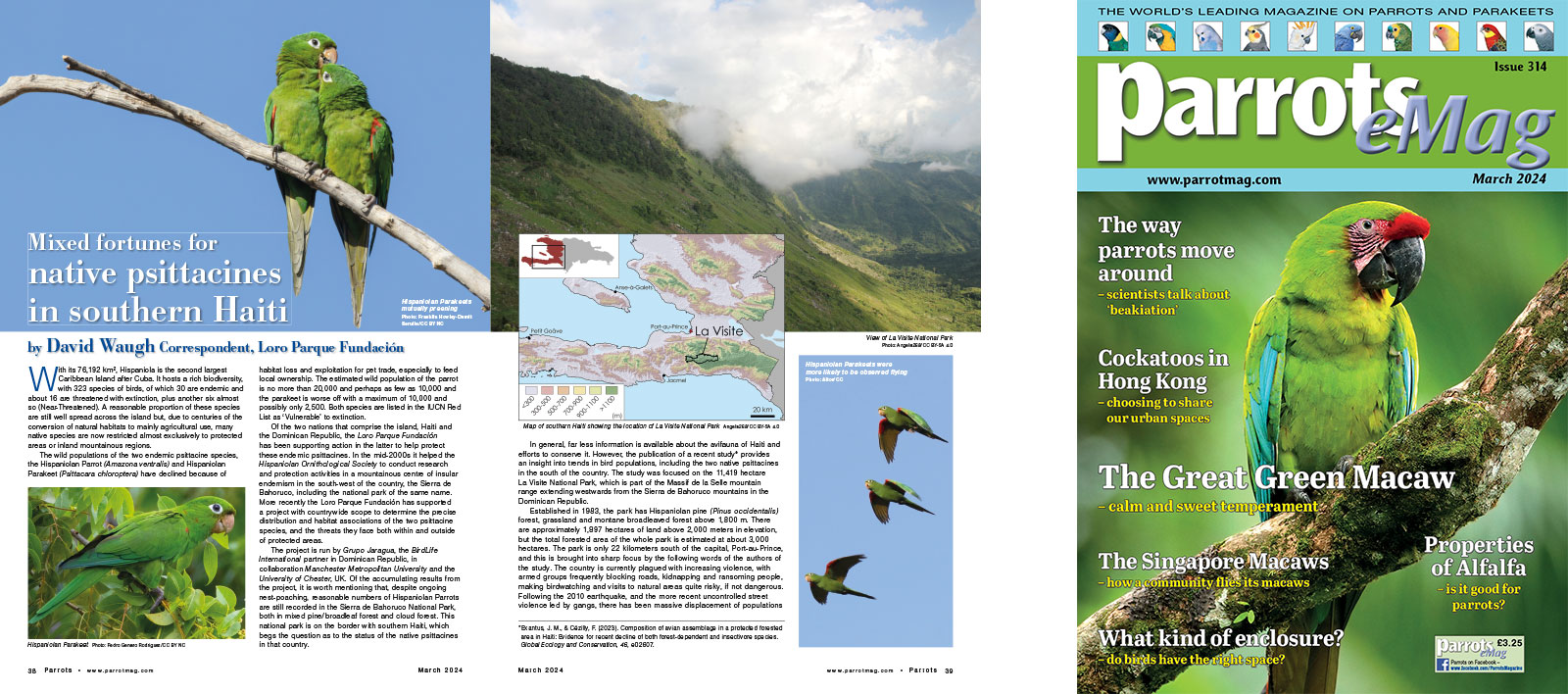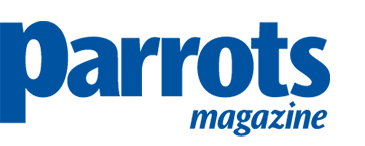
By David Waugh Correspondent, Loro Parque Fundación
With its 76,192 km², Hispaniola is the second largest Caribbean Island after Cuba. It hosts a rich biodiversity, with 323 species of birds, of which 30 are endemic and about 16 are threatened with extinction, plus another six almost so (Near-Threatened). A reasonable proportion of these species are still well spread across the island but, due to centuries of the conversion of natural habitats to mainly agricultural use, many native species are now restricted almost exclusively to protected areas or inland mountainous regions.
The wild populations of the two endemic psittacine species, the Hispaniolan Parrot (Amazona ventralis) and Hispaniolan Parakeet (Psittacara chloroptera) have declined because of habitat loss and exploitation for pet trade, especially to feed local ownership. The estimated wild population of the parrot is no more than 20,000 and perhaps as few as 10,000 and the parakeet is worse off with a maximum of 10,000 and possibly only 2,500. Both species are listed in the IUCN Red List as ‘Vulnerable’ to extinction.
Of the two nations that comprise the island, Haiti and the Dominican Republic, the Loro Parque Fundación has been supporting action in the latter to help protect these endemic psittacines. In the mid-2000s it helped the Hispaniolan Ornithological Society to conduct research and protection activities in a mountainous centre of insular endemism in the south-west of the country, the Sierra de Bahoruco, including the national park of the same name. More recently the Loro Parque Fundación has supported a project with countrywide scope to determine the precise distribution and habitat associations of the two psittacine species, and the threats they face both within and outside of protected areas.
